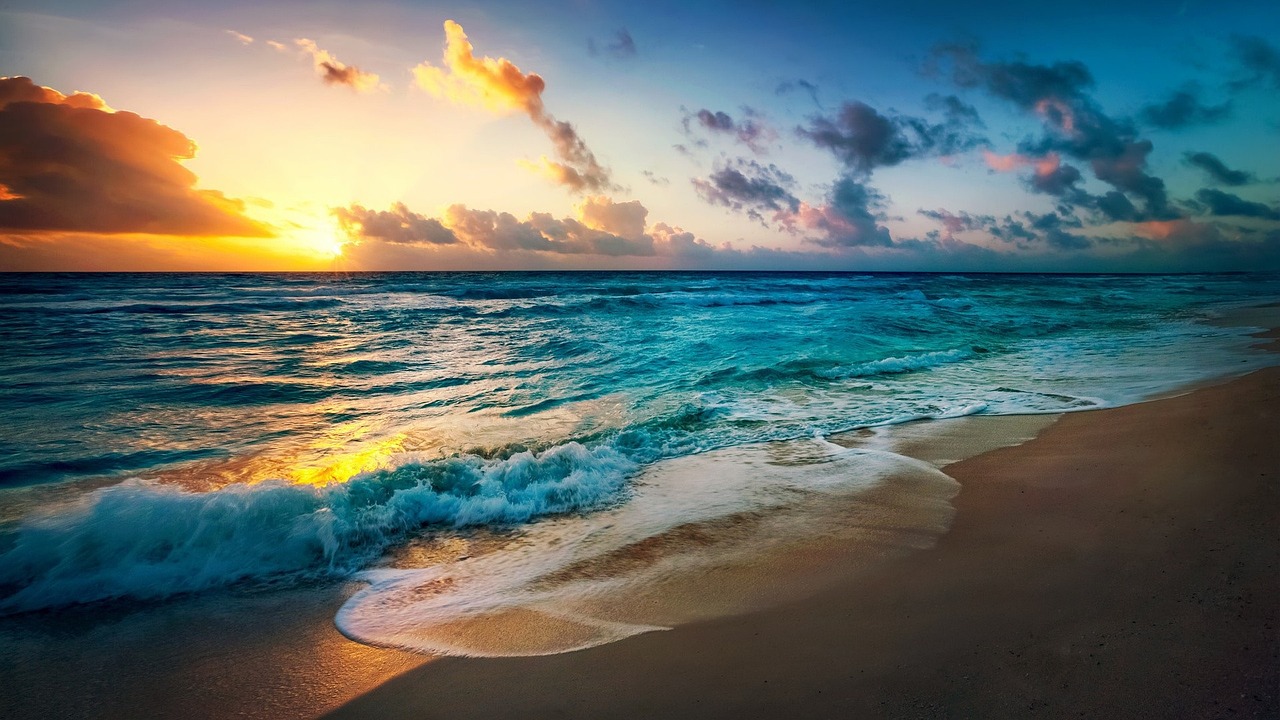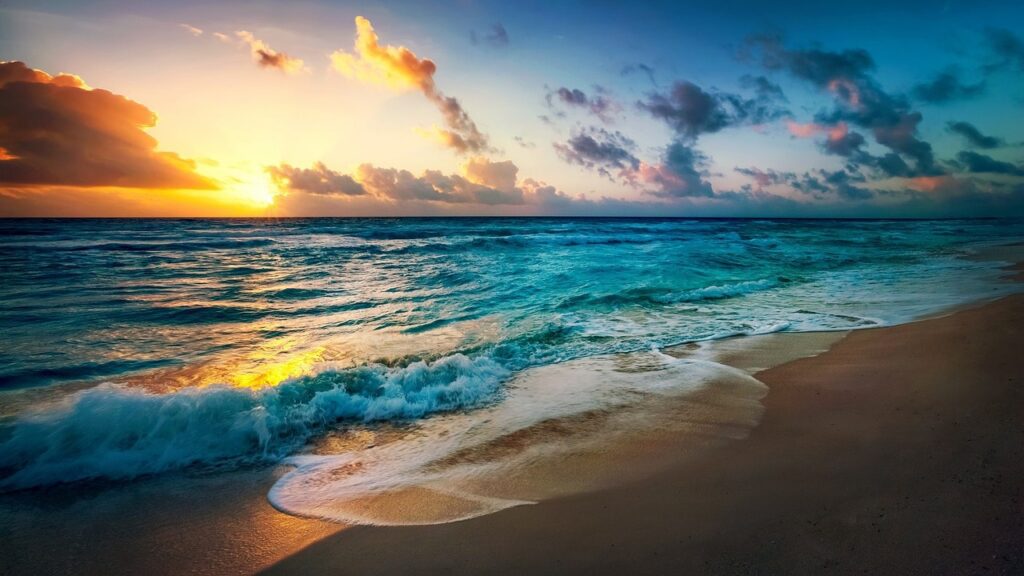Your cart is currently empty!

What Is The Best Mode Of Transportation For A Beach Vacation?
Imagine yourself planning a beach vacation, soaking up the sun, and enjoying the gentle waves. But before you can sink your toes into that warm sand, there’s an important decision to make: how will you get there? With a variety of transportation options available, it can be overwhelming to choose the best mode for your beach getaway. Whether you’re a fan of the open road, prefer the convenience of flying, or enjoy the scenic route on a train, this article will help you navigate the pros and cons of each, ensuring that you make the best choice for your perfect beach vacation.

Driving
Pros of Driving
- Flexibility: When you choose to drive, you have the freedom to go wherever you want, whenever you want. You can make spontaneous stops along the way, explore hidden gems, or take scenic detours that would be difficult or impossible with other modes of transportation.
- Convenience: Driving allows you to bring all your necessary belongings with you, including beach chairs, umbrellas, coolers, and other essentials. You don’t have to worry about packing light or dealing with the restrictions of baggage limits.
- Cost savings for groups: If you are traveling with a group of friends or family, driving can often be more cost-effective compared to purchasing multiple plane or train tickets. You can split the fuel costs and potentially save on accommodation by staying in a shared rental property or camping.
Cons of Driving
- Fatigue and stress: Long hours of driving can be physically and mentally tiring, especially if you are the primary driver. Traffic congestion, road construction, or unexpected detours can also add stress to your journey.
- Time-consuming: Driving to a beach destination can be time-consuming, particularly if it is located far away from your starting point. This can eat into your vacation time and leave you feeling exhausted before you even reach the beach.
- Parking challenges: Popular beach towns often have limited parking spaces, which can be frustrating and time-consuming to find. Additionally, you may have to pay hefty parking fees, adding an extra expense to your trip.
Flying
Pros of Flying
- Speed: Flying is the fastest mode of transportation, allowing you to reach your beach destination in a fraction of the time compared to driving or public transportation.
- Comfort and amenities: Modern airplanes offer a range of amenities to make your journey enjoyable, such as in-flight entertainment, comfortable seating, and sometimes even Wi-Fi access. You can relax, watch movies, or catch up on work during your flight.
- Global access: Flying opens up the possibility of traveling to beach destinations across the world. You can easily explore exotic beaches in other countries without the hassle of long-distance driving.
Cons of Flying
- Cost: Airfare can be one of the most expensive components of your beach vacation, especially during peak travel seasons. Additionally, you may need to consider transportation to and from the airport, which can add to the overall costs.
- Baggage limitations: Airlines often have strict baggage limitations, both in terms of size and weight. If you plan on bringing bulky or specialized beach equipment, you may face additional charges or have to rent equipment at your destination.
- Security and delays: Airport security measures can be time-consuming, requiring you to arrive early and potentially face long queues. Delays due to weather conditions or technical issues can further disrupt your travel plans.
Public Transportation
Pros of Public Transportation
- Cost-effective: Public transportation, such as buses or trains, can be an affordable option for getting to a beach vacation spot. Ticket prices are often lower compared to driving or flying, especially for solo travelers.
- No parking hassles: Many beach destinations have limited parking options or charge high fees for parking. With public transportation, you can avoid the stress of finding a parking spot and simply enjoy your time at the beach.
- Environmental-friendly: Choosing public transportation reduces your carbon footprint and helps protect the environment. It is a more sustainable option compared to driving alone in a car.
Cons of Public Transportation
- Limited flexibility: Public transportation operates on fixed schedules, which may not align perfectly with your preferred travel times. You may have to plan your activities around the available transportation options, limiting your flexibility to explore the beach at your own pace.
- Time-consuming: Depending on your starting point and the availability of direct routes, public transportation can be time-consuming. Multiple transfers, waiting times, and potential delays can significantly extend your overall travel time.
- Limited luggage capacity: Public transportation often has limited luggage capacity, especially on buses or trains. If you are carrying large or bulky beach equipment, you may face difficulties transporting it.
Cycling
Pros of Cycling
- Health benefits: Cycling to your beach vacation destination offers a great opportunity to incorporate exercise into your trip. It helps you stay active, burn calories, and enjoy the scenery along the way.
- Cost-effective: Cycling is a cost-effective mode of transportation, as it eliminates the need for gas or public transportation fees. You can save money that would have been spent on fuel or tickets.
- Embrace nature: Cycling allows you to feel closer to nature and immerse yourself in the surroundings. You can enjoy the fresh air, soak in the sun, and truly appreciate the beauty of the coastal landscapes.
Cons of Cycling
- Limited distance: Cycling to a beach destination is only feasible if you live within a reasonable distance. Long-distance cycling may not be an option for everyone, considering factors such as fitness level and terrain.
- Weather-dependent: Cycling is highly dependent on weather conditions. Rain, strong winds, or extreme heat can make the journey uncomfortable or unsafe. You need to be prepared to face different weather scenarios and have appropriate gear.
- Limited storage capacity: Carrying bulky beach gear, such as umbrellas or chairs, can pose a challenge on a bicycle. You may have to carefully plan your packing or consider renting equipment at your destination.

Walking
Pros of Walking
- Slow-paced exploration: Walking allows you to fully appreciate the details of the beach surroundings. You can explore hidden paths, discover unique features, and enjoy the tranquility of the natural environment.
- Cost-free: Walking is a completely cost-free mode of transportation. You don’t need to worry about transportation fees or parking expenses. It is a budget-friendly option for those looking to minimize expenses.
- Health benefits: Walking is a low-impact exercise that offers numerous health benefits. It improves cardiovascular health, strengthens muscles, and enhances mental well-being. Walking to the beach can be a rejuvenating and stress-relieving experience.
Cons of Walking
- Limited distance: Walking to a beach vacation destination is only feasible if you live within a close proximity. Long-distance walking may not be practical or feasible for most travelers, particularly if the beach is located far away.
- Time-consuming: Walking can be a time-consuming mode of transportation, significantly extending your overall travel time. It may be challenging to allocate enough time for walking, especially if you have limited vacation days.
- Weather-dependent: Walking is highly dependent on weather conditions. Extreme weather, such as heavy rain or scorching heat, may hinder your ability to enjoy the journey. You need to be prepared for different weather scenarios and dress accordingly.
Boating
Pros of Boating
- Scenic and enjoyable: Boating to a beach vacation destination offers a unique and scenic experience. You can enjoy the breathtaking coastal views, feel the gentle breeze, and embrace the calmness of the open water.
- Flexibility and exploration: Boating gives you the freedom to explore different beaches, coves, and islands at your own pace. You can access secluded spots that are not easily reachable by land, creating unforgettable memories.
- Water activities: With a boat, you can engage in various water activities such as snorkeling, fishing, or simply swimming in the crystal-clear waters. Boating expands the possibilities for adventure and excitement during your beach vacation.
Cons of Boating
- Costly investment: Owning or renting a boat can be a significant financial investment. From boat maintenance and fuel costs to docking fees and insurance, the expenses can quickly add up. Boating may not be a viable option for everyone due to its associated costs.
- Weather dependency: Boating is highly dependent on weather conditions, especially if you plan to venture into open water. Strong winds, rough seas, or storms can make boating unsafe or uncomfortable, requiring you to alter your plans.
- Navigation skills and regulations: Operating a boat requires knowledge of navigation skills and awareness of local regulations. You may need to obtain licensing or permits before setting sail, adding an extra layer of complexity to your beach vacation plans.

RVing
Pros of RVing
- Travel and accommodation in one: RVing offers the convenience of having both your mode of transportation and accommodation combined into one. You have the flexibility to stop and explore along the way, while also having a comfortable place to stay at the beach.
- Cost savings on accommodation: With an RV, you can save money on accommodation expenses, especially if you plan to stay at beachfront campsites. RV campsites often offer more affordable rates compared to traditional hotels or resorts.
- Home-like comforts: RVs can provide many of the comforts of home, such as a kitchen, bathroom, and comfy beds. You can cook your own meals, have your own private space, and enjoy the convenience of having all your belongings with you.
Cons of RVing
- Size and maneuverability: RVs can be large and difficult to maneuver, especially in congested areas or tight beachside streets. You need to be comfortable driving a larger vehicle and may face challenges finding suitable parking spaces.
- Fuel expenses and maintenance: RVs tend to be less fuel-efficient compared to smaller vehicles, which can result in higher fuel expenses. Maintenance and repair costs for RVs can also be costly, especially if you encounter any mechanical issues during your trip.
- Limited accessibility: Some beach destinations may have restrictions on RV parking or limited spaces available for RVs. It is important to research and plan ahead to ensure you have a suitable place to park your RV near the beach.
Motorcycling
Pros of Motorcycling
- Thrill and freedom: Riding a motorcycle to your beach vacation destination gives you a sense of freedom and adventure. You can enjoy the thrill of the open road and the feeling of the wind as you cruise along the coastal routes.
- Maneuverability in traffic: Motorcycles have the advantage of being able to navigate through traffic more easily, especially during peak travel periods or congested areas. This can save you time and help you reach your destination faster.
- Scenic rides: Motorcycling allows you to fully experience the scenic beauty of coastal routes. From winding coastal roads to breathtaking ocean views, you can immerse yourself in the sights and sounds of the journey.
Cons of Motorcycling
- Limited luggage capacity: Motorcycles have limited storage space, making it challenging to carry large or bulky beach equipment. You may need to carefully plan your packing and prioritize essentials, or consider renting equipment at your destination.
- Exposure to weather elements: Riding a motorcycle exposes you to the weather elements, including rain, wind, and extreme heat. You need to be prepared with appropriate riding gear to ensure your safety and comfort throughout the journey.
- Safety concerns: Motorcycling carries higher risks compared to other modes of transportation. Throughout your trip, you need to be extra cautious and adhere to all safety measures to minimize the potential for accidents. It is essential to have proper riding skills and protective gear.

Taking a Train
Pros of Taking a Train
- Relaxation and comfort: Train travel offers a more relaxed and comfortable experience compared to driving or flying. You can sit back, enjoy the passing scenery, and unwind during your journey to the beach.
- Scenic routes: Many train routes to beach destinations pass through picturesque landscapes and coastal areas, providing breathtaking views that would be missed while driving. It offers a unique perspective and an opportunity to appreciate the natural beauty.
- Socialization and networking: Train journeys allow you to meet and interact with fellow travelers, creating potential opportunities for socialization and networking. It can be a great way to make new friends or exchange travel experiences.
Cons of Taking a Train
- Limited destination options: Train services may not be available to all beach destinations, especially those located in remote or less accessible areas. You may need to plan your trip based on the availability of train routes, which could limit your options.
- Schedule constraints: Train schedules are fixed, and you must adhere to them. This means you may be required to adapt your beach vacation plans to fit the train departure and arrival times, which could limit your flexibility.
- Potential overcrowding: Trains, particularly during peak travel seasons, can become crowded, especially if they are popular routes to beach destinations. Limited seating or overcrowded compartments may affect your comfort and overall travel experience.
Choosing the Best Option
Considerations for Choosing
When deciding on the best mode of transportation for your beach vacation, consider the following factors:
- Distance and travel time: Evaluate the distance from your starting point to the beach destination and the amount of time you are willing to spend on transportation. If the beach is far away and you have limited vacation time, flying might be the most efficient choice.
- Budget: Determine your overall budget, including transportation costs, accommodation, and other expenses. Consider whether driving or flying would be more cost-effective, especially if you are traveling with a group.
- Flexibility and spontaneity: Think about your preferred level of flexibility and spontaneity during the trip. If you want the freedom to explore different locations and make spontaneous stops, driving or boating may be ideal.
- Personal preferences: Consider your personal preferences and comfort levels. If you enjoy the thrill of the open road, motorcycling or cycling might be suitable options. If you prefer a relaxed journey with scenic views, train travel could be a great choice.
Factors to Consider
Take into account the following factors when evaluating different transportation options for your beach vacation:
- Weather conditions: Consider the weather conditions during the time of your travel. Certain modes of transportation, such as cycling or boating, may be more weather-dependent and could impact your overall experience.
- Accessibility: Research the accessibility of your chosen beach destination by different modes of transportation. Some beach towns may have limited parking spaces, restricted RV access, or lack of train services.
- Equipment and luggage: Assess the equipment and luggage you plan to bring to the beach. Ensure your chosen mode of transportation can accommodate and transport your belongings conveniently.
- Safety and skill requirements: Consider the safety aspects and your level of skill required for the chosen mode of transportation. If you are not confident in your riding skills, motorcycling may not be the best option.
Ultimately, the best mode of transportation for your beach vacation depends on your personal preferences, budget, travel distance, and desired level of flexibility. Consider all the pros and cons of each option, and choose the one that aligns with your preferences and priorities. Remember, the journey to the beach is just the beginning of a memorable and enjoyable beach vacation.